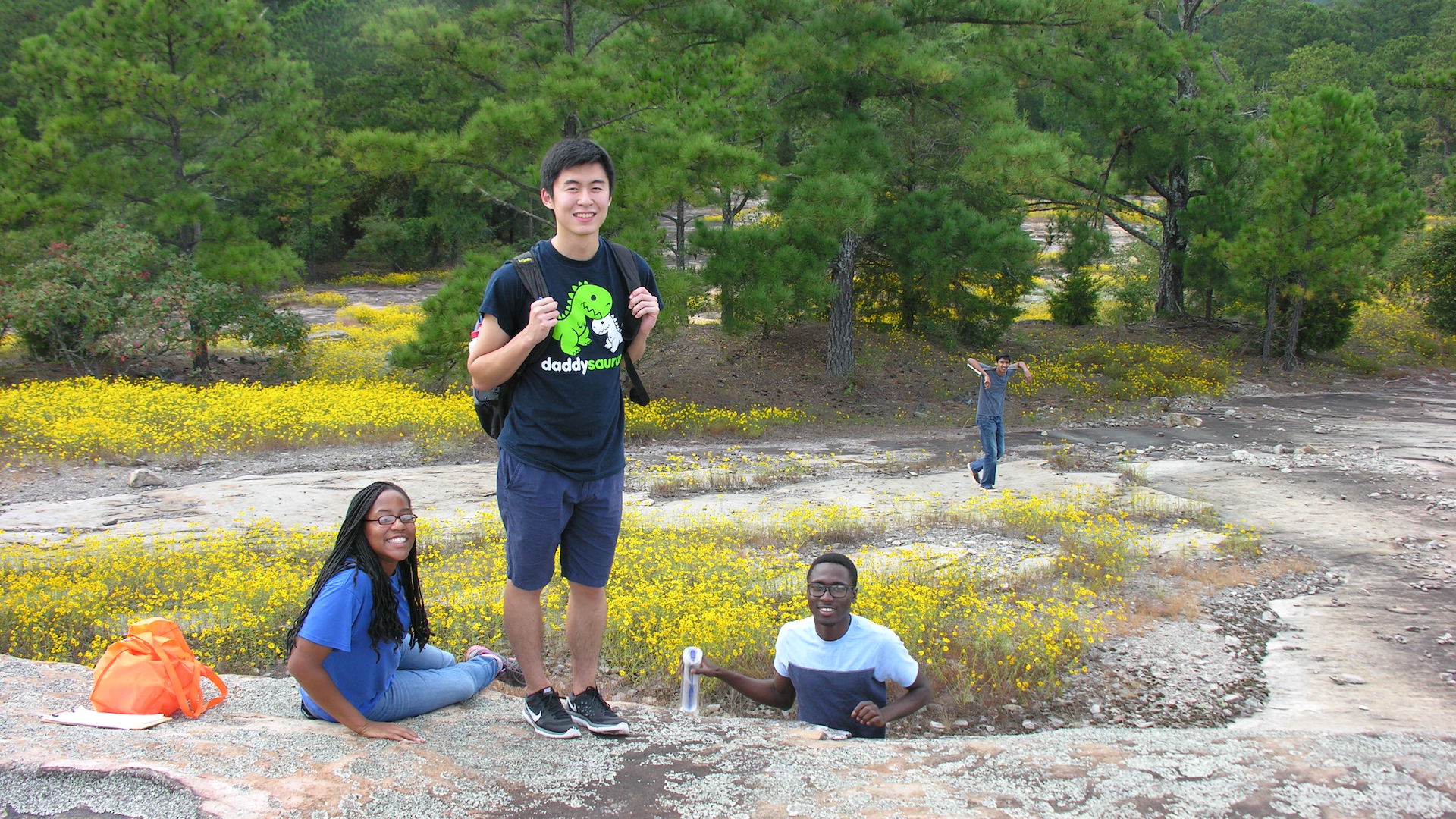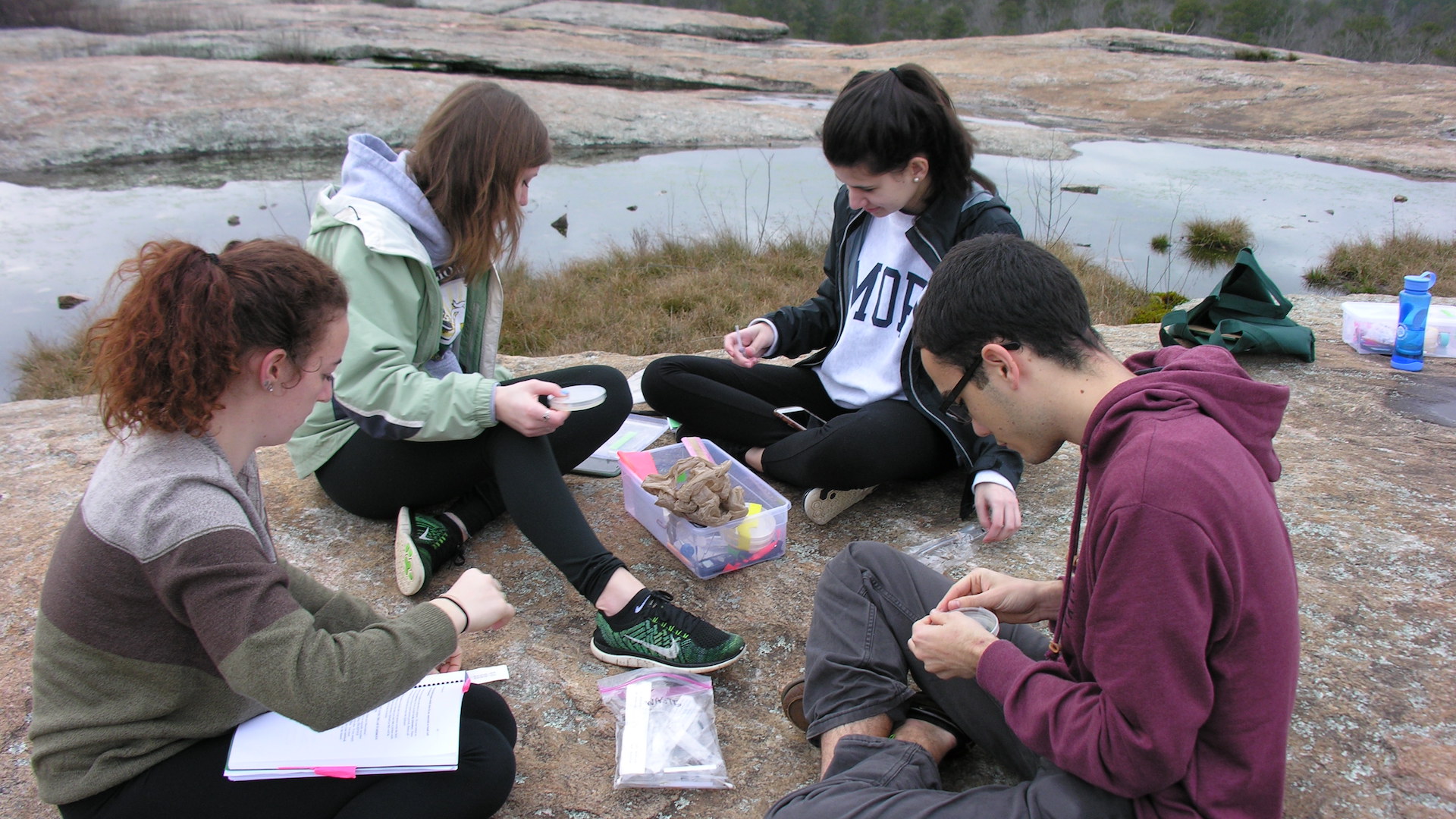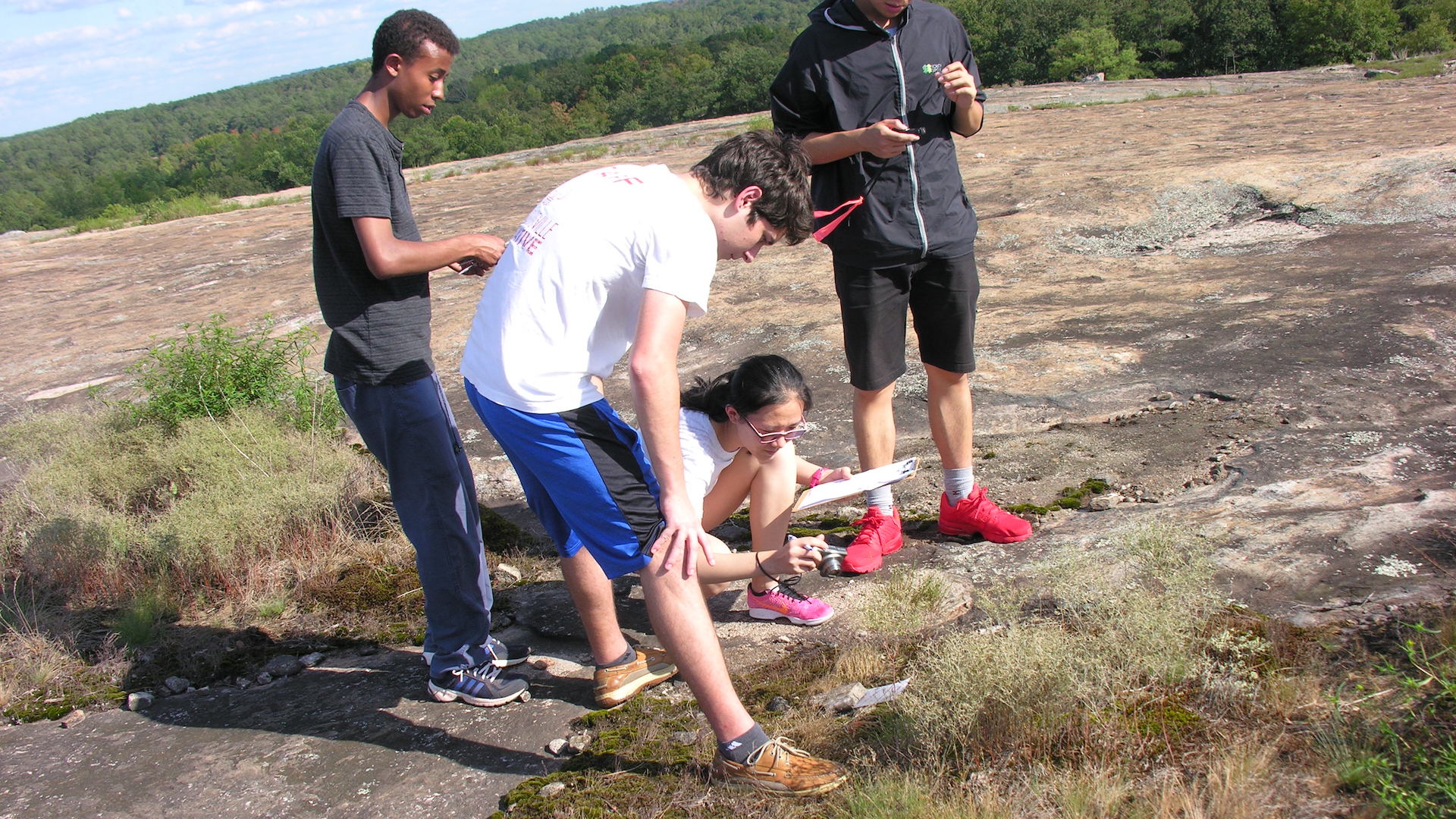Faculty Spotlight: Nitya Jacob

Biology Professor Nitya Jacob has served as an invaluable mentor and teacher to 20 years of Oxford students.
Oxford Biology Professor Nitya Jacob is a born scientist who has spent her career opening doors for students. Through early research opportunities and hands-on learning, she teaches not only the make-up of the natural world, but also critical skills that prepare students for success in both academic and professional endeavors.
"If I were to summarize the main theme of my career, everything I've done has been under the umbrella of mentorship and expanding opportunities in undergraduate science education," Jacob said. "My own disciplinary research is based on making sure there are opportunities for students to do research."
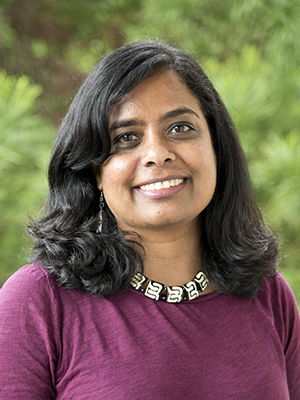
Jacob's love for and commitment to science runs deep. As a child in India, her parents taught at a university, and her proximity to other professors helped spark an already-budding passion for the sciences. She had access to labs where she could take samples and study them under a microscope in the biology building. While she enjoyed such practical activities, she was most drawn to the wonder she felt on the university's observation deck looking at the moon, or even once at Haley's comet.
"That sort of access to see the joy of science was one main reason I was attracted to it," Jacob said. As for her eventual focus in biology, "it was always a natural interest."
She came to the United States to attend Agnes Scott College in Decatur, Ga., and was able to gain research experience as a sophomore—an opportunity that would eventually mirror the cornerstone of her own teaching philosophy of emphasizing early college research.
After completing a PhD at The Ohio State University in horticulture and crop science, Jacob began a post-doc teaching position at Knox College in Illinois, where she was able to clarify her aspirations.
"I found more satisfaction in mentorship and student collaboration than just working in a lab on my own project and output," she said.
This focus on mentorship has been a key part of her time at Oxford, which began in 2002. She helped establish the Summer Undergraduate Research Experience (SURE) program, and worked to incorporate research into actual courses.
"I've had connections with my students where we really become friends over the years," Jacob said. "And that's allowed me to invite alums back to campus to share their stories, and they're happy to do that."
One of her proudest accomplishments is the development of the class Biology 142, which is focused on investigating microbial communities. Students trek up Georgia's Arabia Mountain—a granite rock outcrop about 20 miles from campus—to capture their own bacteria samples and ask research questions about the organisms in that environment.
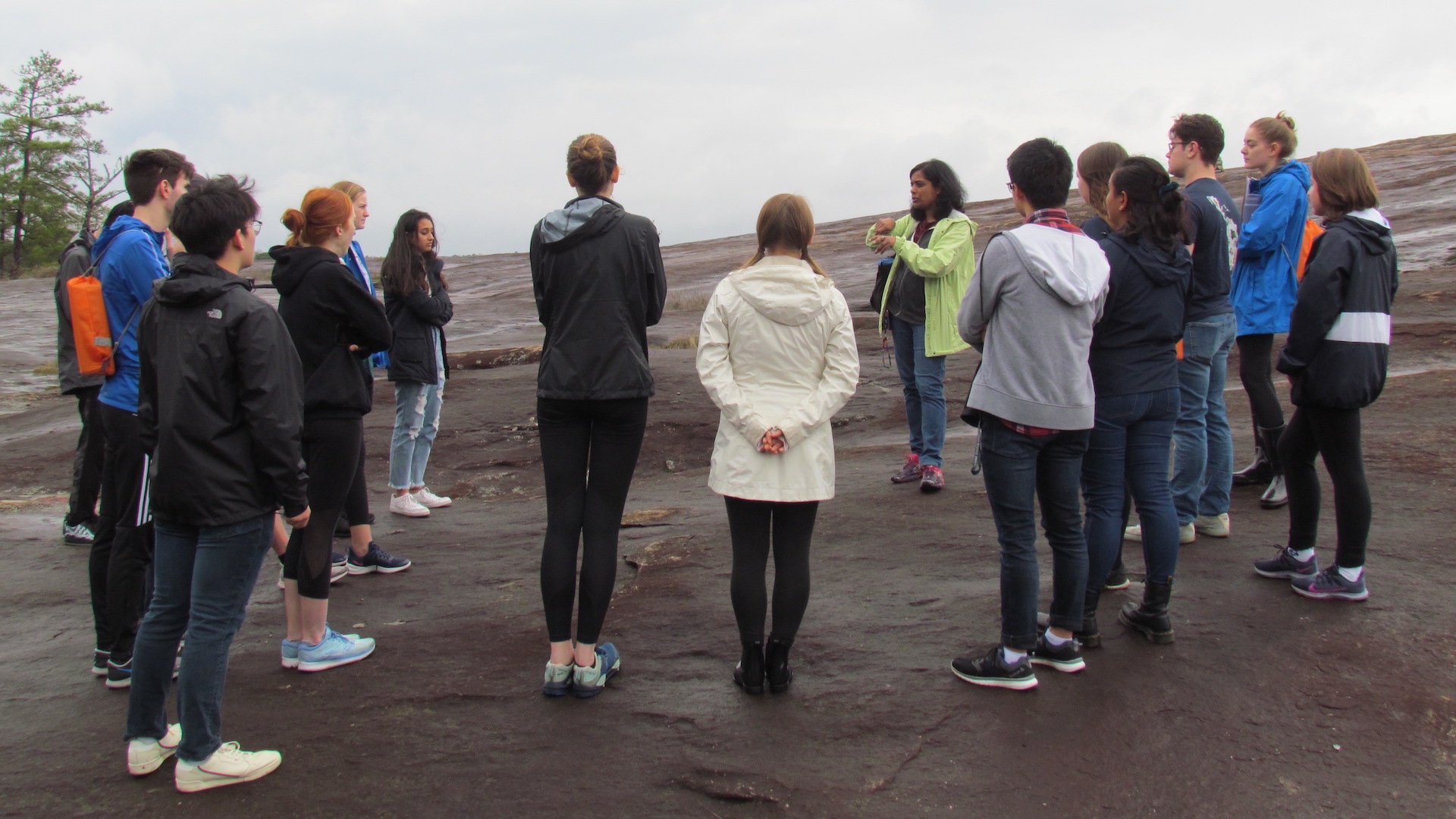
The class inspired former student Nitya Murthy, now a Research Optometrist at Indiana University, to pursue further research opportunities in microbiology on the Atlanta campus and with the CDC.
"I really loved that class and discovered that I had a passion for scientific research," Murthy said. "I'll never forget the fun of collecting data samples up there on Arabia Mountain with my friends, being meticulous because it was our own group project, and how rewarding it was to explore answers to our research question."
Now a faculty member herself, Murthy applies the teaching principles she learned from Jacob with her own students.
"You have to think about what a profession actually involves," Jacob said of STEM-related education and careers. "Sometimes there's a misconception that science is all about memorizing stuff and being able to recite it back, but the reality is that's not what you're doing. Whether working in a lab or on a grant proposal, you're looking through literature, thinking about what's missing, and asking, 'What do we need to do to answer these questions?'"
Early research opportunities "give students experiences in science that show them what kind of opportunities exist for them at the end of the road," Jacob said. "That is more motivational and inspiring to them than the actual content."
The opportunity for hands-on practice at Oxford allows for greater accessibility in the sciences, as it is more focused on showing the breadth of opportunity rather than weeding students out, she said.
After writing a piece on the format of Biology 142 in Science—a premiere academic publication—Jacob received the journal's Inquiry Based Instruction prize, given to those who embody "excellence and innovation."
The success and reach of the paper opened doors for her to implement this pedagogical emphasis on a broader scale. She joined The Partnership for Undergraduate Life Science Education (PULSE) and now works to implement recommendations from the National Science Foundation's "Vision and Change" report, which uses peer-reviewed studies to support an emphasis on competencies over content. In March 2022, she will begin serving as president of PULSE.
"I'm now developing programs for faculty that help them implement these kind of educational reform practices at a departmental level," she said.
In an instance of her mentorship coming full circle, Jacob has been working with Katharine Northcutt, a former student from her first year at Oxford and now a colleague and biology professor at Mercer. They reunited through PULSE and have given joint presentations together.
"Nitya was one of the first teachers that made me interested in the process of science," said Northcutt. "She allowed students to have more autonomy in designing experiments and understanding the significance of our findings. In 2014, Nitya mentored my team of Mercer biologists at the Southeastern Regional PULSE Institute, which led to significant improvements in my department. I am lucky that I have been able to work with her over the past few years."
What Jacob and her PULSE colleagues found was that if a whole department is working toward this same goal rather than just one faculty member, there is much better chance of creating a stable learning culture that values competencies and experiences. She has been working to do just that at Oxford in her role as Chair of the Natural Science and Mathematics Division.
Her goals for the future include a continued effort to support faculty research as the basis for student research involvement.
"Helping faculty succeed and thrive is really important to the success of our students," she said. "We want to be able to offer students more opportunities for research, and that requires faculty to be able to have the time to establish their own work."
For Jacob, the ideal is faculty and students working hand-in-hand, researching and learning together.
